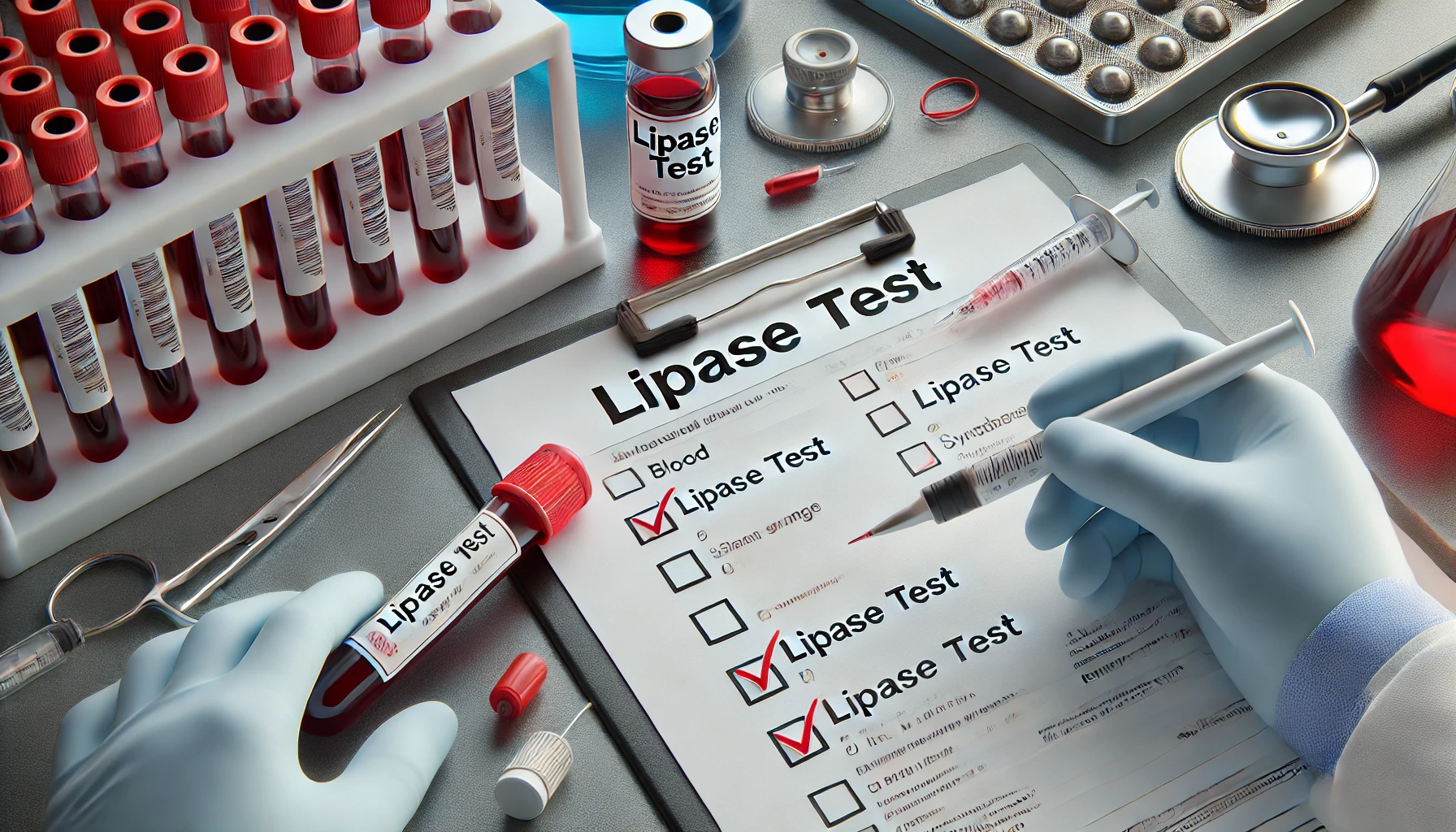This post was written with Consensus AI Academic Search Engine – please read our Disclaimer at the end of this article. A lipase test is a diagnostic procedure used to measure the level of lipase enzyme in the blood. Lipase is an enzyme primarily produced by the pancreas, and it plays a crucial role in the digestion of dietary fats by breaking down triglycerides into fatty acids and glycerol. This test is often used to diagnose and monitor conditions related to the pancreas, such as pancreatitis, and to assess the digestive health of individuals.
Importance of Lipase
Lipase is essential for the proper digestion and absorption of dietary fats. It hydrolyzes triglycerides into free fatty acids and monoglycerides, which can then be absorbed by the intestines. The activity of lipase is influenced by various factors, including pH levels and the presence of bile acids5. Additionally, lipase activity can be affected by certain hormones and dietary components, making it a critical enzyme for maintaining lipid homeostasis2 3.
Procedure of a Lipase Test
The lipase test involves drawing a blood sample from the patient, which is then analyzed in a laboratory to determine the concentration of lipase. The test is relatively simple and non-invasive, requiring only a small blood sample. The results are typically available within a few hours to a day.
Clinical Significance
Pancreatitis Diagnosis
One of the primary uses of the lipase test is in the diagnosis of acute pancreatitis. Elevated levels of lipase in the blood are a strong indicator of pancreatic inflammation or damage. Studies have shown that lipase levels can significantly increase during episodes of acute pancreatitis, making it a reliable marker for this condition1.
Monitoring Pancreatic Function
The lipase test is also used to monitor chronic pancreatitis and other pancreatic disorders. By regularly measuring lipase levels, healthcare providers can assess the progression of the disease and the effectiveness of treatments8.
Digestive Health
Lipase levels can provide insights into overall digestive health. For instance, low levels of lipase may indicate exocrine pancreatic insufficiency, where the pancreas does not produce enough enzymes to properly digest food. This can lead to malabsorption and nutritional deficiencies4.
Factors Affecting Lipase Levels
Hormonal Influence
Hormones such as insulin and catecholamines can influence lipase activity. For example, insulin has been shown to suppress hormone-sensitive lipase activity, which is involved in the mobilization of stored fats2. This hormonal regulation is crucial for maintaining lipid balance in the body.
Dietary Impact
Dietary composition can significantly affect lipase activity. High-fat diets have been shown to increase both lipoprotein lipase and hepatic lipase activities, which are involved in the metabolism of lipoproteins and triglycerides3. Conversely, certain dietary components, such as unconjugated bile acids, can inhibit lipase activity, affecting fat digestion5.
Pharmacological Interventions
Medications like orlistat, a lipase inhibitor, can reduce lipase activity and are used to manage obesity by preventing the digestion and absorption of dietary fats9. This highlights the therapeutic potential of modulating lipase activity in various clinical settings.
Conclusion
The lipase test is a valuable diagnostic tool for assessing pancreatic function and digestive health. By measuring the levels of lipase in the blood, healthcare providers can diagnose and monitor conditions such as pancreatitis, exocrine pancreatic insufficiency, and other digestive disorders. Understanding the factors that influence lipase activity, including hormonal regulation and dietary impact, can further enhance the clinical utility of this test.
Disclaimer
The content presented in this blog is generated by Consensus, an AI-powered academic search engine, and is based on publicly available scientific literature. While every effort is made to provide accurate, up-to-date, and well-researched information, the content is intended for informational and educational purposes only. It does not constitute medical advice, diagnosis, or treatment. Always consult a qualified healthcare professional before making any decisions regarding medical conditions, treatments, or medications. The AI system’s analysis may not cover all perspectives, emerging research, or individual cases, and it is not a substitute for professional expertise. Neither the blog publisher nor the developers of the AI-powered search engine are responsible for any actions taken based on the information provided in this content. Use of this information is at your own risk. Citations to the original scientific studies are included for reference, but these studies should be reviewed in full and interpreted with the guidance of a healthcare or research professional.
If you are experiencing a medical emergency, please seek immediate attention from a healthcare provider.
